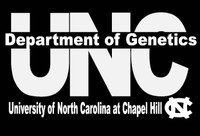Department of Genetics faculty, postdocs and students were awarded more than $2.3M in grants during the months of June – August 2018.

Molecular and Functional Analysis of NLR Family Members
Jenny Ting, PI. R01 Competitive Renewal from NIAID, $502K (year 1)
This project will analyze innate immune receptors that belong to the NLR family and decipher their ligands and delineate their new functions.
Obesity Associated Viral Pathogenesis
Jason Whitmire, PI. R01 from NIAID, $388K (year 1)
Obesity currently afflicts 10% of adults globally is increasingly prevalent. Among many consequences, obesity worsens health outcomes during infection, increases the frequency of infections, and reduces vaccine effectiveness. We are interested in how obesity and adipose tissue alter T cell defenses against virus infection. Our immediate objective is to understand how obesity worsens health to infection. Our long-term goal is to translate this information to improve antiviral defenses and survival in individuals with weight disorders.
Integrative Analysis of a Long Noncoding RNA Functional Network in Pluripotency
Keriayn Smith, PI. R03 from NICHD, $77K (year 1)
Long noncoding RNAs (lncRNAs) have been implicated in the regulation of developmental and physiological processes, with dysregulation becoming increasingly associated with numerous maladies including developmental anomalies and cancers. Understanding the function of the lncRNA Cyrano will enable us to better understand its contribution to cellular function, and expand the general knowledge on lncRNA function in human development and disease, a first step towards curative measures.
Epigenetic Mechanism of Histone Modifying Enzymes in Craniofacial Development
Karl Shpargel, PI. R03 from NIDCR, $155K (year 1)
Many human craniofacial syndromic disorders result from haploinsufficiency of chromatin modifying proteins. These enzymes regulate histone post-translational modifications or nucleosomal structure to alter the transcriptional state of large genic groups. Studying how chromatin modifiers function at the cellular, molecular, and genomic levels is crucial towards elucidating craniofacial disorder pathogenicity. Due to reversibility of histone post-translational modifications, chemical inhibitors of these enzymes have been generated for therapeutic approaches that may be applicable towards syndromic features.
Role of the NLRPs Inflammasome in Pathogenesis of Human Diseases
Bev Koller, PI. Contract with Nod Thera Ltd., $230K total
In this grant proposal we develop both cellular and in vivo models for determining the extent and mechanism by which NLRP3 contributes to sterile inflammatory diseases, including inflammation associated with tumor growth. These models will extend our knowledge concerning the mechanism of NLRP3 activation and how this complex cellular process is regulated under various physiological conditions. Models developed will also be useful for testing novel experimental therapeutics which seek to target the NLRP3 pathway.
Cancer Cell Intrinsic and Extrinsic Actions of Steroid Hormones in Breast Tumors
Chuck Perou, PI. Subcontract with Duke University (DOD), $62K (year 1)
The goal of this project is to use the biological insights from the studies in projects 1-3 to (a) identify, using our propriatery mechanism-based discovery platform, new classes of SERMs/ER-modulators that are optimized for positive activities in immune cells, (b) identify drugs that exploit new pathways we have identified in cancer cells and in immune cells within tumors the modulation of which are likely to positively impact tumor immunogenicity and response to contemporary checkpoint inhibitors.
A Carolina Center to Characterize and Maintain Mutant Mice
Terry Magnuson, PI. Admin Suppl from NIH Office of Director, $435K total
Genetically engineered mouse models provide a tractable system for studying human development and disease. The knowledge gained has the potential for dramatically improving public health. The MMRRC-UNC imports, archives and distributes mouse strains to the scientific community to protect and provide efficient access to this valuable resource. In addition, the MMRRC-UNC has developed comprehensive genotyping tools that aid in understanding the effect of genetic background on phenotypic variability.
NC NEXUS, North Carolina Newborn Exome Sequencing for Universal Screening
Cynthia Powell and Jonathan Berg, PIs. Admin Suppl from NICHD, $350K total
Genomic medicine has tremendous potential to improve the health of children by facilitating more accurate diagnosis, deeper insight into mechanisms of disease, and individually targeted prevention and treatment. This proposal is relevant to public health because critical challenges remain to be addressed before genomic medicine can be broadly implemented in the newborn screening context.
Deciphering Non-coding Variation in Schizophrenia
Hyejung Won, PI. NARSAD Young Investigator Grant from Brain and Behavior Research Foundation, $17.5K (year 1)
Role of IL35 in Immunotherapy Resistance in Pancreatic Cancer
Yuliya Pylayeva-Gupta, PI. Award from Concern Foundation, $60K total
This research project aims to understand how targeting IL35 will enable efficacy of existing immunotherapy treatments, so that it may be efficiently translated into clinically impactful treatment.
Genetic and Longitudinal Analysis of Airway Remodeling
Samir Kelada, PI. Lauren Donoghue FELLOW, F31 from NHLBI, $35K (year 1)
The results of this proposal will further our understanding of airway remodeling mechanisms and how remodeling is developed over time, providing a significant foundation for identifying new targeted therapeutics for asthma.
The Role of an Inhibitory NLR in Obesity-Associated Colorectal Cancer
Jenny Ting, PI. Dana Hardbower, FELLOW, F32 from NIH, $56K (year 1)
In sum, this proposal aims to characterize the role of NLRP12 in O-CRC and the extent to which the interplay between NLRP12 and the gut microbiome alters O-CRC in mice and humans. These
studies may potentially yield novel avenues of risk stratification for individuals with O-CRC.
